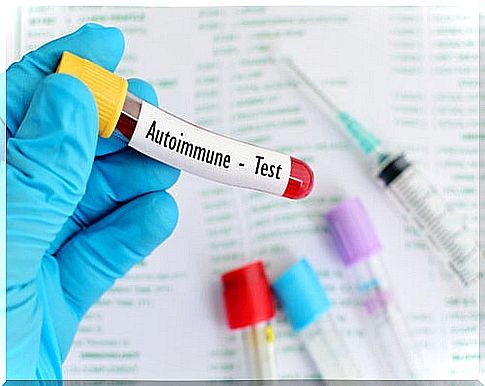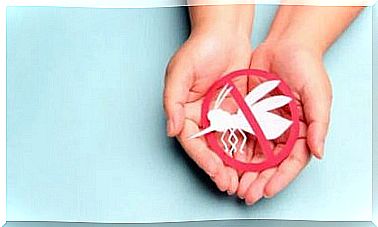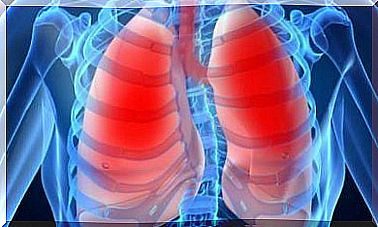6 Symptoms Of High Cortisol Levels
Cortisol (also called hydrocortisone) is a hormone produced by the adrenal gland. High levels of cortisol can have a negative effect on your health. Find out below what are the main symptoms of high cortisol levels.
This hormone increases blood sugar, inhibits bone formation and causes diseases such as obesity. If you have high cortisol levels, you will be diagnosed with hypercorticism or Cushing’s syndrome. This disease leads to excessive fat accumulation, high blood pressure and excessive stress.
To determine whether or not you have hypercorticism, consider the following symptoms of high cortisol levels:
1. Sudden weight gain
Weight gain is one of the first symptoms of high cortisol levels. It is most visible in the upper body, with fat accumulating in regions such as the shoulders, chest and back.
The strangest thing is that the patient’s arms and legs will continue to be supple.
2. Skin problems

And the skin will be affected by high levels of cortisol. Hypercorticism can cause:
- Acne
- Purple lesions on the breasts, abdomen and thighs
- bruising
- Excessive growth of facial and body hair
3. Musculoskeletal symptoms
Excess cortisol can affect muscles and bones. The bone structure becomes weakened, which increases the risk of fractures, especially in the ribs and spine.
4. Deficiencies of the immune system

The thymus, a gland that regulates the human immune system, is also affected by high levels of cortisol. Hypercorticism can cause cell death, as the immune system begins to attack body tissues instead of viruses.
- The most common consequences of weakening the immune system are asthma and allergic reactions.
- But the patient’s condition can get even worse. In the worst cases, hypercorticism causes lupus, Crohn’s disease and fibromyalgia.
5. Depression and mood swings, on the list of symptoms of high cortisol levels
Anxiety is one of the most common symptoms of excessive stress. This tends to be accompanied by constant and sudden changes in mood throughout the day. If the problem progresses a lot, depression can set in.
Some studies have shown that high levels of cortisol reduce blood flow to the brain and supply this organ with glucose. These factors affect the ability of brain cells to absorb glucose, which can cause their death.
6. Fatigue and insomnia

The energy provided by cortisol can be counterproductive. The body is excessively active during the day and fails to rest. At night, extra cortisol inhibits relaxation and makes it difficult to sleep.
- Under normal conditions, cortisol levels rise around 8 o’clock in the morning, to supply the body with energy.
- But in patients with hypercorticism, things are the other way around: the hormone is active at night, and in the morning its level decreases.
How can cortisol levels be reduced?
Here are some tips to reduce your cortisol levels so that you have a healthier life.
Say goodbye to coffee
Caffeine tends to increase the level of cortisol in the blood by at least 30% in a single hour. In some cases, this effect may persist for up to 18 hours. If you want to reduce your catabolism and stimulate your anabolism, stop drinking coffee.
Try to sleep more

Improve your sleep cycle by consuming infusions such as chamomile or valerian tea before bed. They help the body to sleep and rest longer.
In addition to the fact that cortisol levels will decrease, you will look younger and healthier, the impact of the passing years being reduced.
Get moving
A regular exercise routine increases muscle mass, stimulates the production of serotonin and dopamine and reduces the risk of anxiety and depression. At the same time, exercise helps you consume the extra energy produced by hypercorticism and reduces cortisol levels.
Keep your blood sugar stable
Serve meals high in carbohydrates, protein and fiber to keep your blood sugar under control. We advise you to take supplements based on vitamin B, calcium, magnesium, chromium, zinc, vitamin C and alpha-lipoic acid (ALA).









